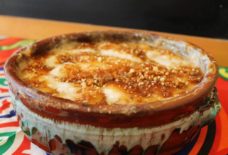The American Dream thrives among Midwestern Muslims
posted on: Aug 5, 2017
Source: Washington Examiner
By: Timothy P. Carney
“America Was Never Great” caught on as a slogan in some circles of the Left as a counter to Donald Trump’s slogan, “Make America Great Again.” The New Republic and Black Lives Matter activist Shaun King applauded the idea.
King’s argument, echoed by others, is that America never was great because it’s not “great for people of color, for Muslims, for immigrants, for the LGBTQ community,” and all sorts of marginalized communities. The argument is that the American Dream is and has been real only for the privileged.
Somebody forgot to tell American Muslims.
While Trump’s election caused plenty of anxiety among American Muslims and his campaign has surely stirred up anti-Islamic sentiment, it hasn’t dampened the optimism of American Muslims, a recent poll by the Pew Research Center suggests.
The current dismay is captured in a sharp downturn in Muslims’ answers about the “direction of the country” and the president’s friendliness to Muslims. Many other indicators point the opposite way.
Almost all American Muslims were willing to say “I am proud to be an American,” with 92 percent agreeing with that. More tellingly, 80 percent agreed that they were “satisfied with the way things are going” in their own life.”
With hard work, you can get ahead, seven in 10 American Muslims believe. And here’s the kicker: In all of these numbers, Muslim Americans are more positive about America than the general public.
About half of all American Muslims said someone had, in the past 12 months, expressed support for them because they are Muslim. One woman told me it happens more now than ever before.
“Donald Trump is a godsend,” said Fadia Abaza, president of the Masjid Saad mosque in Sylvania, just outside of Toledo, Ohio. She said that Trump’s election has spurred strangers, who see her wearing her hijab, to come up and express love and concern. “Never has so much love been brought to the surface.”
I doubt many Muslims would put it the way Fadia did. But the numbers above and my experience across three mosques in Toledo last Friday, suggest an extraordinary belief in the American Dream.
Toledo has been a magnet for Arab immigrants, both Christian and Muslim, since the late 1800s. “Henry Ford liked Lebanese workers,” Dr. Zaheer Hasan surmised, while talking to me after Friday prayers at a storefront mosque in a strip mall.
“It’s not the money,” he said. “I come here, I like it, because people treat me well. …That really is a great blessing we enjoy in America — nice people. People try to follow the rules. They don’t try to cheat people.”
The Muslim experience of America, of course, will vary from place to place. “Toledo cannot be looked upon the same as the rest of the United States,” Hasan says. Hasan thinks Muslim life in Toledo is great in part because Midwesterners are the nicest. ”
“Kids in the neighborhood adopted my kids,” he says of Perrysburg, the suburb of Toledo where he lives, and which hosts a massive mosque, the Islamic Center of Greater Toledo. “I’d open the door, and I’d find 30 sneakers in my house and no food left….Everybody watched over everybody else’s kids.”
“We really focus on this being a community center,” Nadia Ashraf-Moghal told me at the Islamic Center, “not just a musjid,” the Arabic word for a prayer hall. They also gather on Sunday.
The Social Services committee runs a blood drive and volunteers through the Mosque staff a local soup kitchen. On Friday afternoon, a local family was preparing food in the social hall on the ground floor of Islamic Center for an Ameen ceremony — a rite of passage for young boys who have finished their guided reading of the Koran.
Dozens of families and hundreds of guests were expected. The community, not merely the nuclear family, celebrated the local children’s accomplishments together.
In a way, the close-knit Muslim communities are the typical strong community in America today: strong families, decent economy, and a foundation of shared religious belief. “It’s both a spiritual thing and a community,” said Susan Hashmi, who had showed me around the mosques on Friday.
This is the story in most places where the American Dream holds purchase. Religion provides both a solid moral foundation and a robust network that builds social capital, providing both a support structure and a sense of purpose.
So it may seem odd that Muslim Americans are above average in their optimism about the country. But really they’re just on the same page as other communities of believers.
Timothy P. Carney, the Washington Examiner’s commentary editor, can be contacted at tcarney@washingtonexaminer.com. His column appears Tuesday nights on washingtonexaminer.com.









